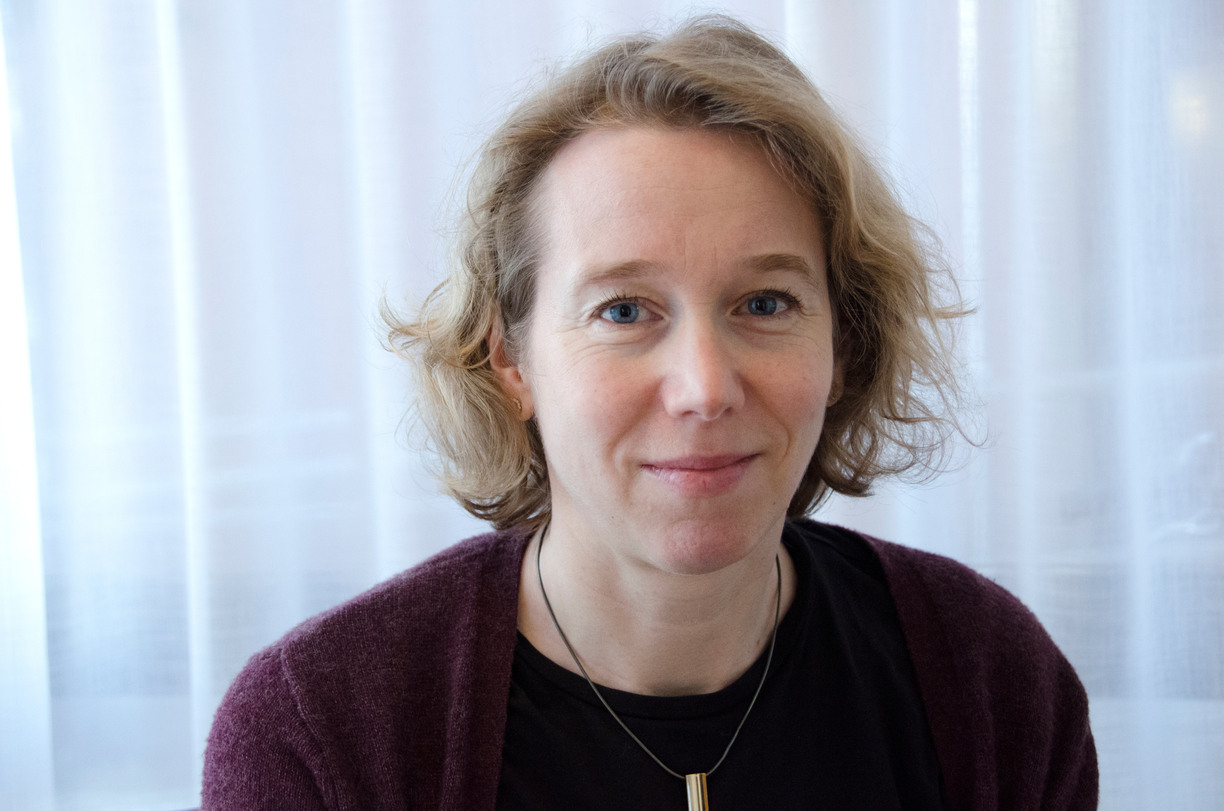
Malin Wass, Associate Professor of Engineering Psychology, has researched reading comprehension in children with cochlear implants. Photo: Åsa Stubbfält
28 January 2020
Large vocabulary extra important for children with cochlear implants
The vocabulary plays the biggest role when it comes to developing reading comprehension for children with cochlear implants (CIs). This has been shown by researchers at Luleå University of Technology.
In a research project funded by Riksbankens jubileumsfond, Malin Wass, Associate Professor of Engineering Psychology at Luleå University of Technology, together with researchers from Karolinska Institutet, Linköping University and the University of Oslo, followed the reading and language development of 45 children with severe hearing impairment or deafness for three years. The children hear with the help of cochlear implants.
– We already know that children with severe hearing impairment or deafness often find it difficult to learn to read and rarely gain normal reading ability. Since reading development is based on spoken language, they don’t have the same conditions as normal hearing children. Most of the children we study have been completely deaf before receiving their implants. A large proportion of them mostly use spoken language for everyday life, but for others it’s more difficult and they use sign language as a complement, says Malin Wass.
Vocabulary is crucial
The researchers have, among other things, investigated which linguistic abilities are most strongly associated with good reading comprehension in 11-year-olds. In another study, the researchers looked at children's orthographic learning, that is, their ability to memorize how words are spelled so that they can learn to recognize them immediately when they see them.
– What we have seen in both studies is that their vocabulary plays the biggest role. The children with CI have a smaller vocabulary than normal hearing children and it has a strong connection with their reading comprehension. Vocabulary is important even for normal hearing, but we think it’s even more important if you have a severe hearing loss, says Malin Wass.
According to her, the adults need to help the children expand their vocabulary by, for example, reading and talking a lot with them from an early age.
– We know that many parents and educators already do this, but I wish they had even more support in how to best help the children. It’s important that we learn more about what’s needed for this group of children to develop their reading ability, in order to give them the right support. You may have good ideas about it as an educator, but research is also needed that provides actual evidence of what works and what doesn’t, says Malin Wass.
Surprisingly good results
The studies also show that children with CI use the same abilities as normal-hearing children to develop their reading comprehension.
– On the other hand, children with CI have poorer conditions when it comes to certain language skills because of their limited hearing, says Malin Wass.
The majority of the 45 children in the study are within the normal range for normal-hearing children when it comes to reading ability.
– It’s a surprisingly good result when compared with studies done in other countries.
I think that’s because we have good intervention for this group of children in Sweden. We usually detect hearing loss early and this means that the children get their implants early. You don’t have to pay for your implants yourself, which you have to do in many other countries. The technology has also improved significantly. The implants have become so good that the children can go to regular schools, says Malin Wass.
Develop educational support
She hopes that the research results will be used to further develop educational support for children with CIs.
– There’s much to gain from developing the support. The families and schools who find it difficult to support the children have great development opportunities. For them, the evidence from the research can help to motivate them to do something about this. Hopefully, we or some other research team can develop methods to help the children. For example, you could develop a program to practice extra reading with the children. It could be used both in school and by parents, says Malin Wass.
In the media:
Published:
Updated:

